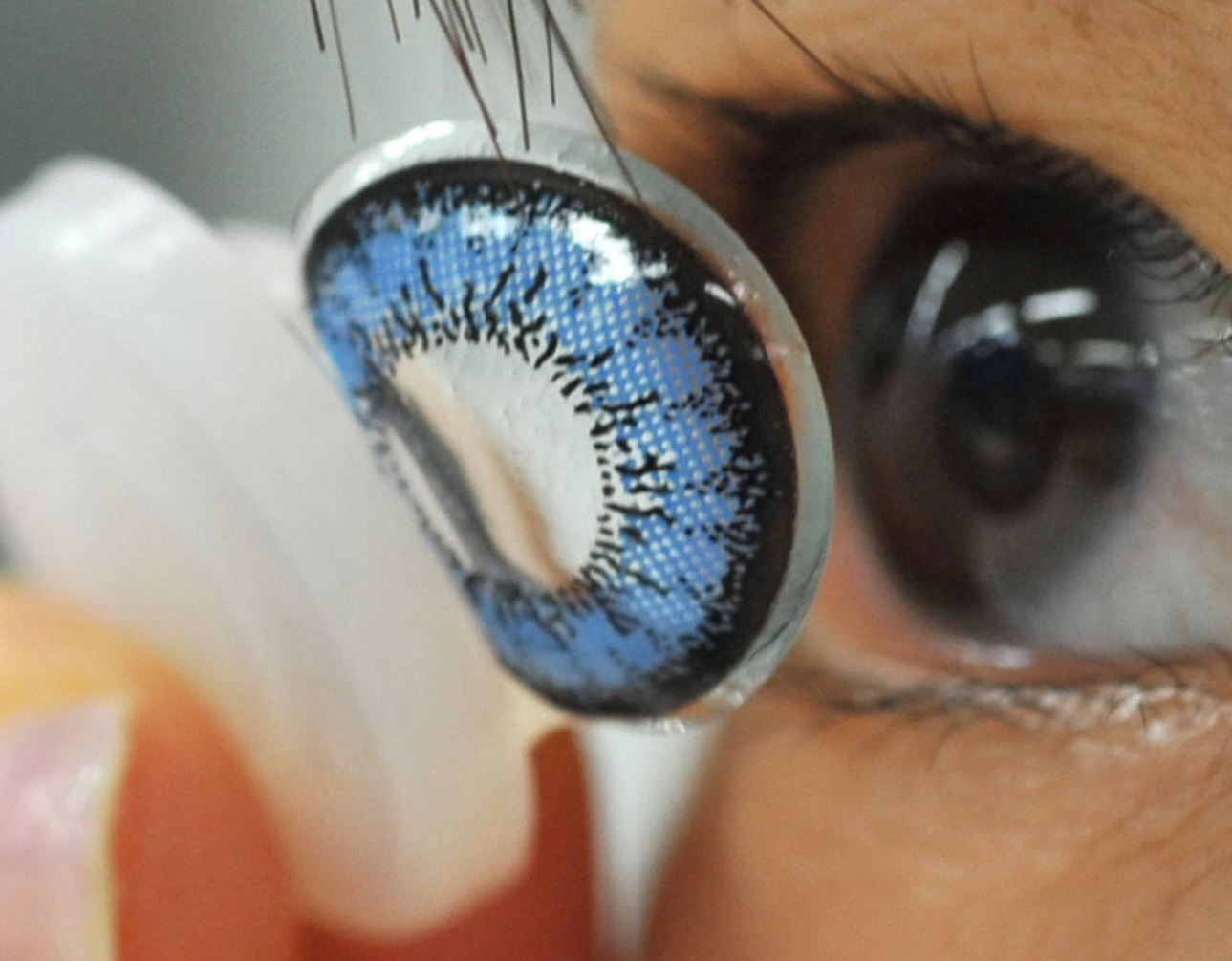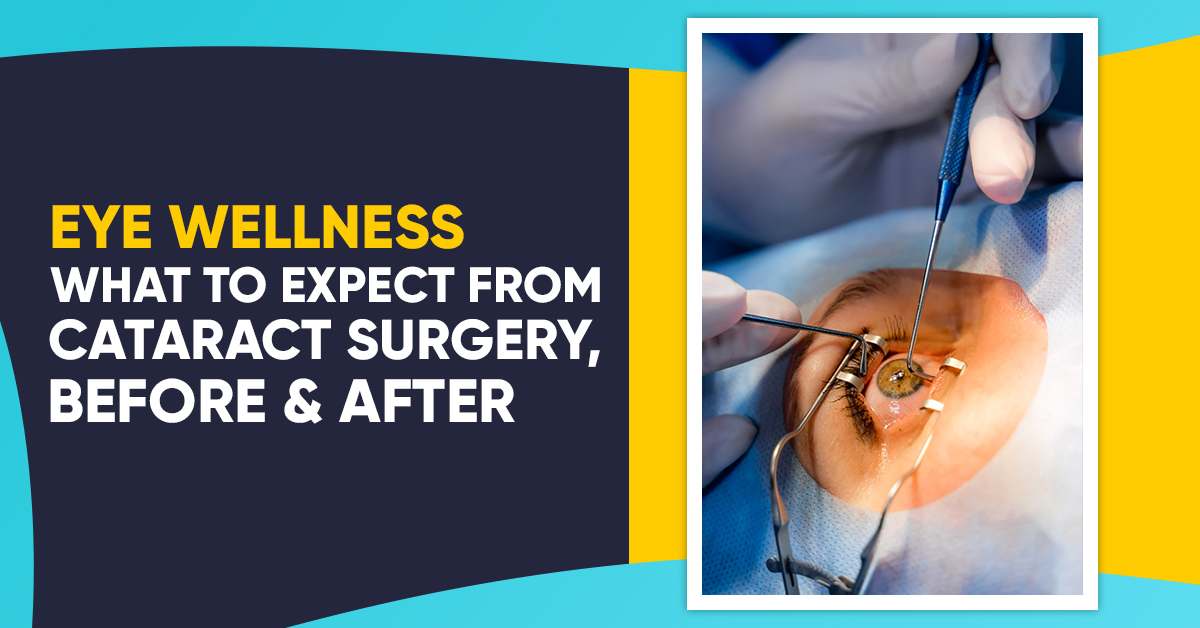Cataracts are quite familiar and can cause significant vision loss. Cataract surgery is a common and successful procedure that causes no discomfort and can perform on an outpatient basis.
By inserting an artificial lens in place of your natural one, cataracts can extract, and your eyesight will restore.
When you finally get the clear vision you’ve yearned for after undergoing cataract surgery, you’ll be on your way to living a happier, healthier life. However, it would help if you took care to allow yourself plenty of time to heal while still according to your doctor’s postoperative instructions.
In this blog, we will discuss what to expect after cataract surgery. Let’s continue!
Table of contents
Estimated reading time: 5 minutes
Overview: Why Cataract Surgery?
Cataract surgery is the removal and replacement of the eye’s natural lens with an artificial one. Your eye’s lens should generally be transparent. Cataracts are clouding of the lens, which causes visual impairment.
You won’t need to spend the night in the hospital after having cataract surgery since it can be done on an outpatient basis by an eye doctor (ophthalmologist). Cataract removal is a routine surgical operation that has a high success rate.
Cataracts are a common medical condition that affects people of all ages and can lead to impaired vision and a heightened sensitivity to light.
Cataract surgery may be advised if your eye doctor cannot see the retina to check for or treat conditions like age-related macular degeneration or diabetic retinopathy because of your cataract.
There is usually no immediate danger in delaying cataract surgery, so you have time to weigh your alternatives. Cataract surgery may not be necessary for a long time if your eyesight is still pretty excellent.

How do you Prepare For Cataract Surgery?
Supplemental nutrients with prescription drugs:
You could be asked to fast for 12 hours before cataract surgery. In addition, your doctor may instruct you to temporarily discontinue the use of any medications that may raise your risk of bleeding.
Prior to cataract removal, certain medicines used to treat prostate issues should be discussed with your surgeon.
It is possible that your surgeon will advise you to begin taking antibiotic eye drops one or two days before the procedure.
The need for additional safety measures:
You will likely be able to go home the same day as your operation, though you may need to make other transportation arrangements.
Your doctor may advise you to avoid strenuous activity, including bending and lifting, for a week after surgery, so you may want to arrange for assistance around the house if necessary.

What to Expect Before the Cataract Surgery Procedure?
Your doctor will measure the size and shape of your eye using a painless ultrasound about a week before surgery. This can determine which lens implant will work best for you (intraocular lens or IOL).
When cataract surgery is performed, IOLs are routinely implanted in nearly all patients. Lenses like this help your eyes focus more light on the retina, which in turn gives you clearer vision.
The lens will be invisible and unfilmable. Because it integrates permanently into your eye, it needs no special maintenance.
You can choose from several IOLs that each have their benefits. Your eye doctor will go through the different types of IOLs and help you decide which would be best for you before surgery. Insurance policies typically do not cover the whole cost of corrective glasses.
IOLs can be found in acrylic or silicone plastic forms. Some IOLs protect from UV rays. Some IOLs are stiff plastic and must be inserted through an incision requiring many stitches (sutures) to seal.
However, because many IOLs are bendable, a smaller incision is often sufficient, and stitches are often unnecessary.
After the standard lens has been removed, the surgeon will fold this artificial lens and place it within the eye’s capsule. Folded to fit within the tablet, the IOL unfolds once inside the eye.
What to Expect After the Cataract Surgery Procedure?
After cataract surgery, you should begin to notice an improvement in your vision within a few days. It is possible that you will suffer momentary blurriness in your vision while your eye adjusts to the new state it is in.
When you have surgery, and your lens is replaced with a clear one, you may notice that colors appear more vibrant. Before cataract surgery, patients often report that colors appear muted.
Typically, you’ll have follow-up appointments with your ophthalmologist a day or two after surgery, a week later, and then one more a month later to check on your recovery.
After surgery, you may have slight discomfort and itching for a few days. Do not touch or rub your eye.
Most of the pain should go away within a couple of days. In most cases, full recovery takes place within eight weeks.
Any of the following should prompt a quick phone call to the doctor:
- Vision loss.
- A persistent ache that does not improve with the use of over-the-counter pain medications.
- The redness that was previously present in the eyes has become considerably more severe.
- Puffy eyelids.
- Your vision may suddenly change with a flash of light or the appearance of many floaters.

Conclusion
The vast majority of persons who have cataract surgery report improved or completely restored eyesight.
Post-cataract surgery patients might develop a secondary cataract. Medical professionals name this posterior capsule opacification (PCO).
This happens when cloudiness develops at the back of the lens capsule, which supports the lens implant.
Yttrium-aluminum-garnet (YAG) laser capsulotomy is a painless, five-minute outpatient surgery used to cure PCO. YAG laser capsulotomy is a procedure in which a laser beam creates a tiny hole in the cloudy capsule, allowing light to flow through.
Your doctor will want you to stay for about an hour after the treatment to monitor your eye pressure. Retinal detachment and elevated intraocular pressure are two further, less common problems.
To read more blogs related to eye wellness or contact lenses, you can visit UNIQSO.
Read More:


